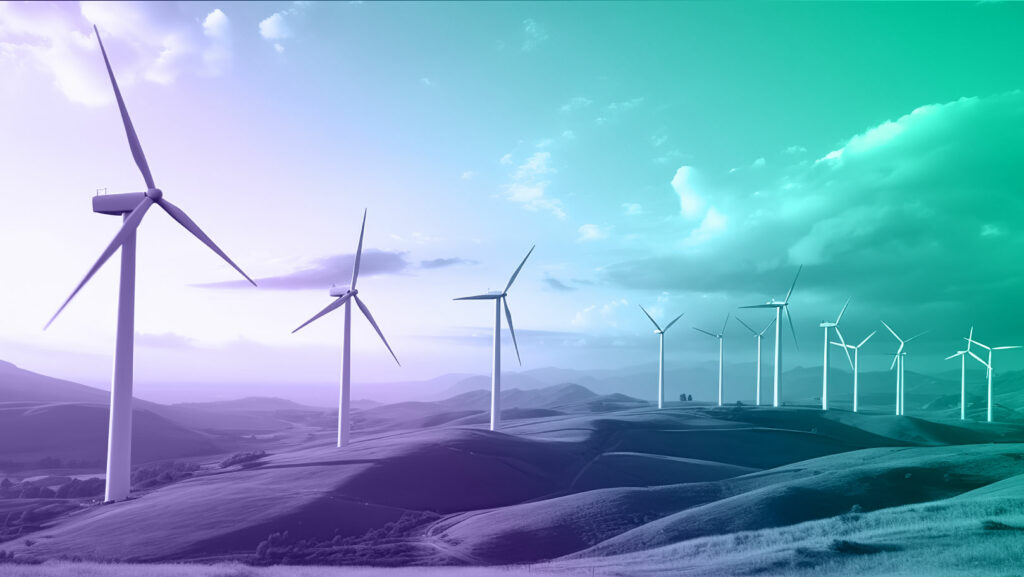By Eric Scheriff, head of Capstone’s energy and industrials practice
July 31, 2024
If VP Kamala Harris is elected as president, her administration would continue President Biden’s climate momentum by continuing to implement the Inflation Reduction Act, managing the role of China in US decarbonization efforts, and expanding environmental policies in line with Democratic Party priorities. Harris would govern as she campaigns, being less vocal about progressive policy ideals and focusing more on building on the Biden-Harris record. However, Harris would differ from Biden in two notable areas.
How Harris Differs from Biden
Energy & Environmental Policy
- Harsher Stance Toward Domestic Resources: Harris has taken a noticeably sharper stance against the oil and gas industry in her roles before becoming vice president. She may consider stricter actions to curb incentives that prolong the lifeline of fossil fuel production and consumption.
Trade Policy
- Opposed Two Free Trade Agreements: Harris has opposed two major trade deals that Biden supported—the US-Mexico-Canada Agreement (USMCA) and the Trans-Pacific Partnership. Her opposition stemmed from concerns that neither agreement sufficiently protected the environment or labor rights, prompting her to be one of ten senators to vote against the USMCA. If Harris wins, the US will likely emphasize environmental issues in the review of USCMA in July 2026 and new free trade agreements will continue to be unlikely.
On the Record…
What Harris has said about US energy policy
- She’d continue momentum from the Biden admin: Harris would maintain the Biden administration’s focus on implementing economy-wide energy and climate policy. In 2022, Harris cast the tie-breaking vote in the Senate to pass the Inflation Reduction Act (IRA) and has highlighted the resulting “millions of good-paying, clean energy jobs” and the “rebuilding of America’s manufacturing.” Her campaign will likely emphasize the benefits of finalizing IRA guidance and her victory would end talk of its repeal. Moderate voters will again play a deciding factor in the 2024 presidential election, putting pressure on Harris to choose a running mate and a platform that plays more to centrist ideas and highlights the countrywide benefits of Biden-era climate laws.
- She’s harshly criticized US oil and gas production: At a September 2019 Climate Crisis Town Hall, Harris affirmed her aim to ban fracking on both public and private lands, saying, “There’s no question, I’m in favor of banning fracking.” She vowed to end federal support for the oil and gas industry, halt new oil leases on federal lands, and regulate methane emissions. These stances differed from those she supported as vice president where she took a major step back from the anti-oil and gas rhetoric. However, a representative for her campaign recently said that Trump’s claims that she would ban fracking are false.
- She’s litigated against the oil and gas industry: As California state attorney general, Harris established a reputation as a vocal opponent of the oil and gas industry. She helped win almost $50 million in settlements by suing companies such as BP plc (BP) and ConocoPhillips (COP) over improperly maintained gasoline tanks and other issues, and filed criminal charges against Plains All American Pipeline LP (PAA) over a pipeline leak. She also investigated if ExxonMobil (XOM) knowingly deceived consumers and shareholders about the risks its products posed to climate change. While this did not result in prosecution, her actions were at the beginning of the rise in state and local governments filing suits against oil and gas companies for their role in climate change. The US Supreme Court is still waiting for guidance from the Department of Justice on how climate litigation cases against the oil industry should proceed.
What Harris has said about environmental policy
- She’s advocated for environmental justice: Harris is a well-known advocate for environmental justice. In 2005, as San Francisco district attorney, she created one of the first dedicated environmental justice units in the country focused on environmental crimes. In 2018, Harris introduced the Environmental Justice Right to Know Act, which sought to infuse environmental justice into how agencies examined pesticides and cosmetics. Harris also introduced the Senate’s Environmental Justice for All Act in 2020, which specifically sought to address “disproportionate adverse human health or environmental effects of federal laws and programs” on communities around the country.
- She’s supported regulations on PFAS: A Harris administration would continue the Biden administration’s aggressive approach to regulating per- and polyfluoroalkyl substances (PFAS). Biden has pushed PFAS regulation through a “government-wide approach,” including directing the Environmental Protection Agency (EPA) to publish a PFAS Strategic Roadmap in 2021, which has since guided the agency’s policy on PFAS. Most federal regulation of the chemicals has been promulgated over the past few years, which Harris has supported. In April 2024, after the EPA announced that it was finalizing national drinking water standards on six different PFAS, Harris noted her support of the regulations in a post on X.
What Harris has said about Trade policy
- She’s not a protectionist: Harris has emphasized the importance of pursuing trade policies that create export markets for US products, rather than broad-based tariffs that isolate the US economy. During a Democratic debate in late 2019, Harris declared “I am not a protectionist Democrat. We need to sell our stuff.”
- She’s criticized tariffs on China: VP Harris and former President Trump have starkly different approaches to trade policy. Harris views tariffs as burdening Americans by raising the cost of living. Harris has specifically criticized Trump’s imposition of tariffs on over $300 billion worth of imports from China and his proposal to introduce a 10% universal tariff on all imports.
- She’s targeted forced labor: Harris has advocated for legislation to combat forced labor in China. As a senator, she co-sponsored the Uyghur Human Rights Policy Act, which became law in 2020. The law empowers the federal government to sanction “foreign individuals and entities responsible for human rights abuses” in the Xinjiang region of China.




























